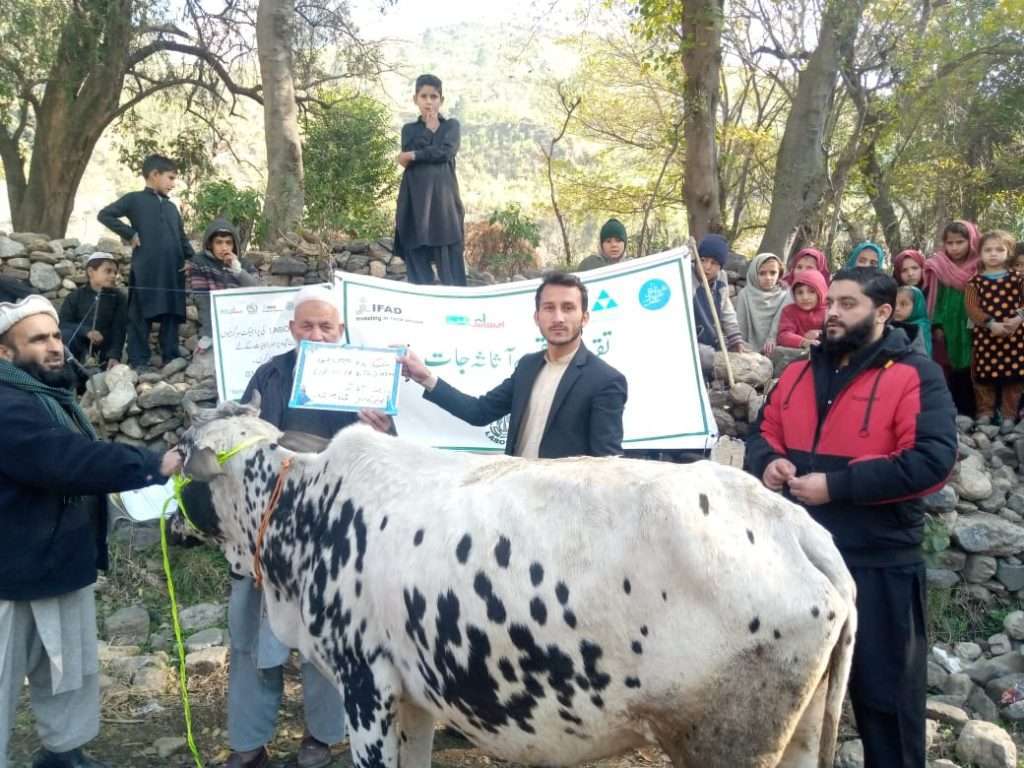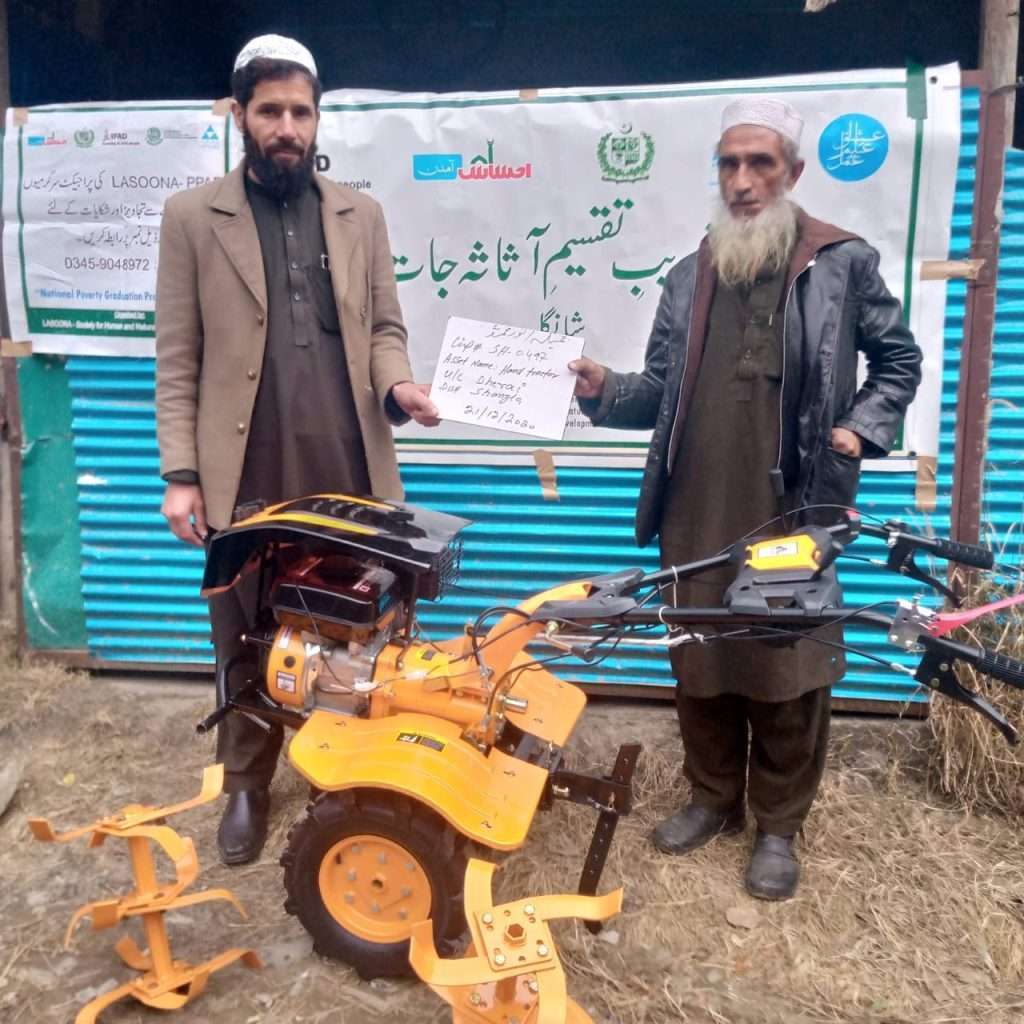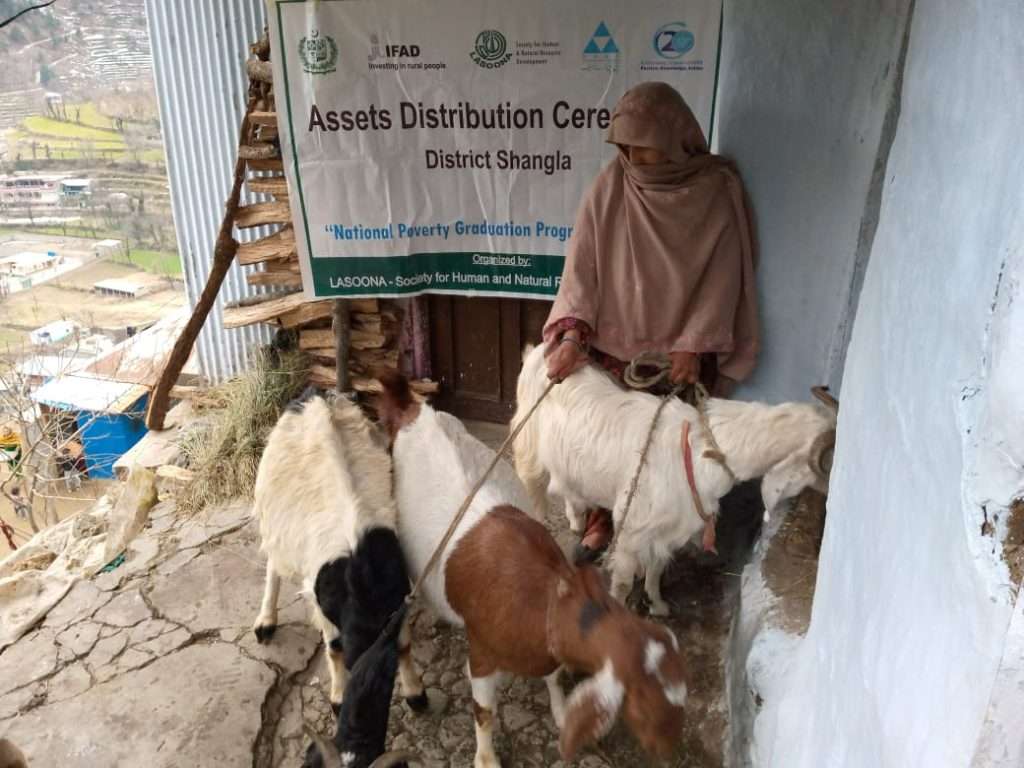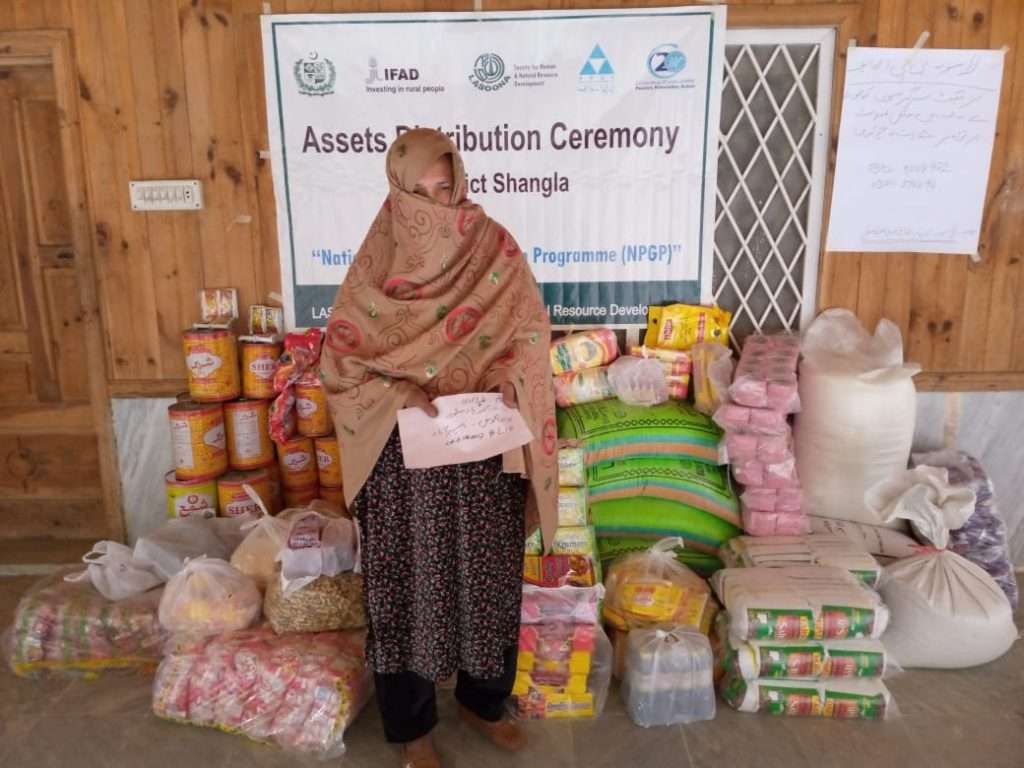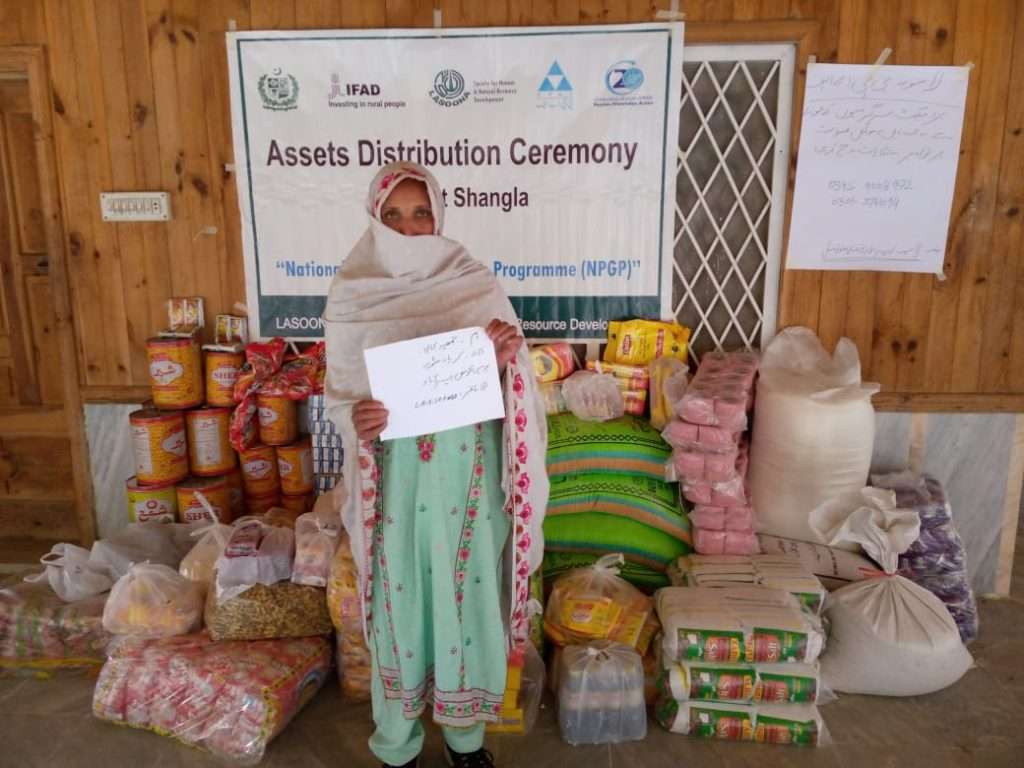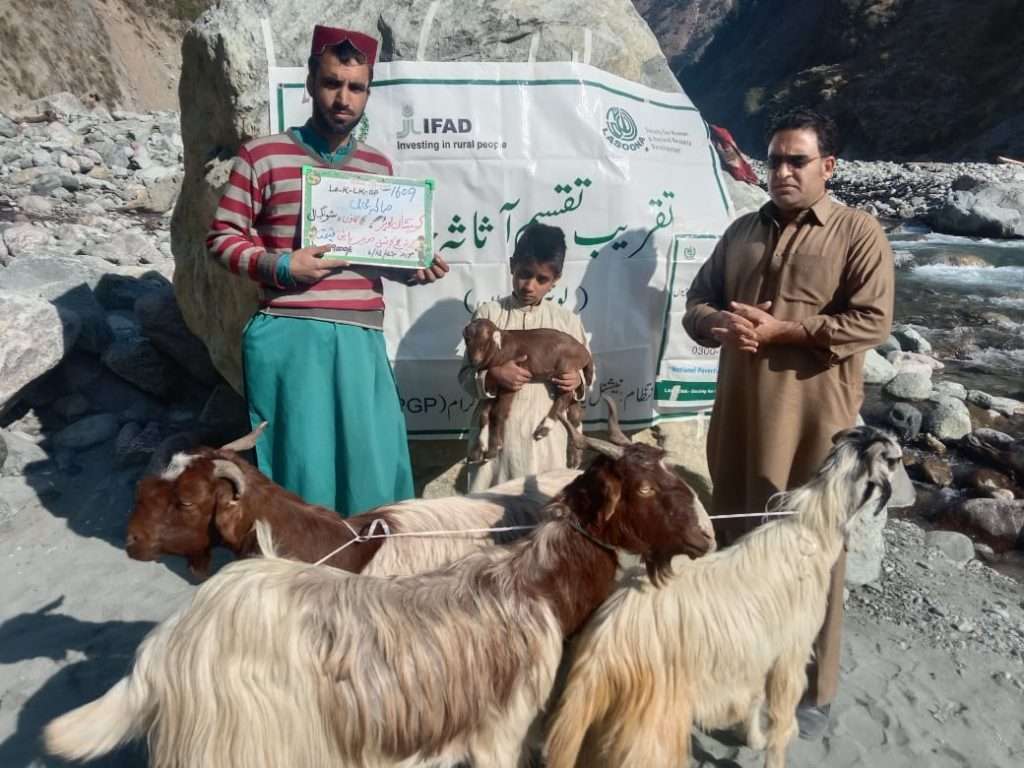- By Editorial Board
- October 1, 2019
- 0 Comments
Food Security & Sustainable Livelihoods
October 2019 -June 2025
Government of Pakistan and The International Fund for Agricultural Development (IFAD)
Upper Kohistan, Kolai Palas Kohistan, Lower Kohistan, Torghar, Battagram and Shangla
![]() Project Description:
Project Description:
The overall goal of the programme is to assist the ultra-poor and very poor in graduating out of poverty on a sustainable basis; simultaneously improving their overall food security, nutritional status and resilience to climate change
Objectives:
The Objective is to enable the rural poor and especially women and youth to realize their development potential and attain a higher level of social and economic wellbeing through a proven flexible and responsive menu of assistance.
Expected Outcomes:
– Improved livelihoods, living conditions and income-generative capacities for poor households and the youth (with diversified assets for sustainability in moving up the poverty ladder).
– Women from ultra-poor and poor households experience higher levels of socio-economic empowerment and their families experience improved nutrition and food security.
– Target populations have improved access to financial services and investment opportunities.
– Strengthened dialogue and knowledge sharing on pro-poor (and climate resilient) poverty reduction policies, supported with evidence-based research.
Programme Components
- LASOONA has entered into a partnership with PPAF for National Poverty Graduation programme, funded by Government of Pakistan and International Fund for Agriculture Development(IFAD).
- This programme consists of two components:
Component – 1: Poverty graduation with mutually reinforcing sub-components:
- ASSET CREATION: Households with a score between 0-18 on the Poverty Scorecard (PSC), will be provided with a package (average of PKR 60,000) that consists of a combination of assets along with the relevant skillset training to utilize the asset transferred; and/or are offered technical and vocational trainings for which job placement or self-employment opportunities have already been identified. Tangible assets will be offered to those in the 0-16.17 category as they are receiving an unconditional cash transfer from BISP which serves as a consumption allowance while intangible assets will be offered to those falling in the 16.18 – 18 poverty band.
- TRAINING OF LIVELIHOOD AND IFL BENEFICIARIES: The trainings would enable the target beneficiaries to harness their potential to maximize the benefits from the given assets and interest free loans. Borrowers would receive training on financial literacy and enterprise development.
Component – 2: Social Mobilization and Programme Management:
- The programme will follow a tested and proven social mobilization approach to community targeting, organization and implementation in all target areas for the delivery of project interventions. The component will support the continued engagement with communities. Community organizations at the hamlet and village level will be further capacitated and empowered to participate in programme activities, with a special focus on women’s empowerment, resilience to climate change and contributing to specific SDGs. Community resource persons will also be identified in every Union Council and trained to become institutional or sector experts, providing relevant services and support to target beneficiaries and community institutions.
- Provision of women-centric awareness/ sensitization sessions on health, nutrition, climate resilience, gender, peace and justice, etc.
